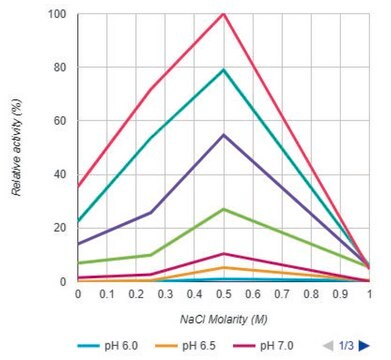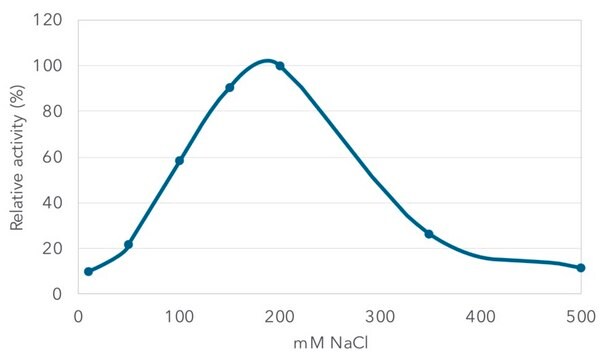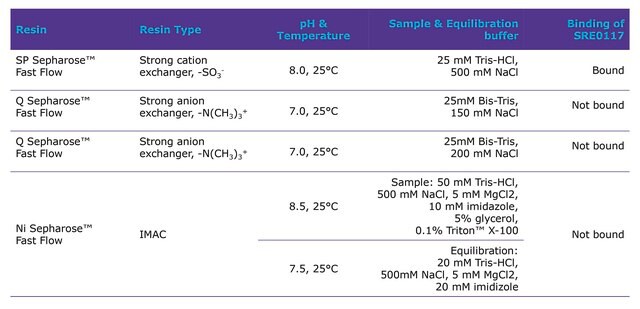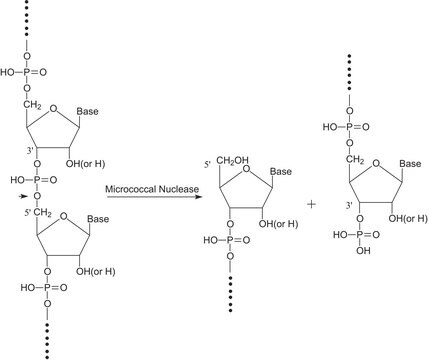SRE0015
Salt Active Nuclease (SAN)
recombinant, expressed in Pichia pastoris
Synonym(s):
Endonucelase, Salt active endonuclease
About This Item
Recommended Products
biological source
fermentation/recombinant
Quality Level
recombinant
expressed in Pichia pastoris
form
buffered aqueous glycerol solution
specific activity
≥250000 U/mg
technique(s)
DNA extraction: suitable
suitability
suitable for nucleic acid purification
application(s)
cell analysis
shipped in
wet ice
storage temp.
−20°C
Related Categories
Application
Biochem/physiol Actions
oligos. The enzyme degrades DNA vs. RNA in a ratio of 10:1.
SAN is highly active over the temperature range 10-40 °C. The optimal NaCl-concentration for activity is 0.5 M. However, SAN is active in low salt buffers. 1 M NaCl is not recommended for use of SAN. Mg2+ (>1 mM) is required for activity. The pH working range is above neutral pH, with an optimal range between pH 8.5-9.5
Physical form: Solution in 25 mM Tris-HCl (pH 7.5), 5 mM MgCl2, 0.5 M NaCl, 0.01% Triton, and 50% (v/v) glycerol
Unit definition: One unit (U) is defined as an increase in absorbance at 260 nm of 1 Absorbance Unit in 30 minutes at 37 ºC, using 50 μg/ml calf thymus DNA in a buffer with 25 mM Tris-HCl (pH 8.5, 25 ºC), 5 mM MgCl2, and 500 mM NaCl.
Unit Definition
Storage Class
10 - Combustible liquids
wgk_germany
WGK 2
flash_point_f
Not applicable
flash_point_c
Not applicable
Choose from one of the most recent versions:
Certificates of Analysis (COA)
Don't see the Right Version?
If you require a particular version, you can look up a specific certificate by the Lot or Batch number.
Already Own This Product?
Find documentation for the products that you have recently purchased in the Document Library.
Customers Also Viewed
Our team of scientists has experience in all areas of research including Life Science, Material Science, Chemical Synthesis, Chromatography, Analytical and many others.
Contact Technical Service










